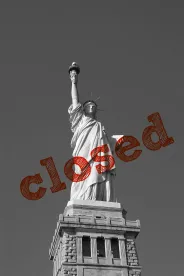Since last week when we wrote about the “shelter in place” and “stay at home” orders issued in California, New York, and Illinois, many more states have issued similar orders. The general discussion from our prior alert still applies, but below is an up-to-date list of the states that have adopted the stay-at-home approach to fighting the spread of COVID-19.
Note that for states not on the list yet (and even for some that are, such as California), municipalities have also taken it upon themselves to enact and enforce similar orders and ordinances. In light of this, it is important to review both state and local orders when determining whether your business can stay open and operational. Additionally, when a state order and a local order appear to conflict, the analysis of which one wins out needs to be made on a state-by-state basis. It is also important to keep current on any updates from the jurisdictions that affect your business, since some states (e.g., Connecticut) have issued subsequent orders that clarify how the original order applies to certain businesses.
States with “Stay at Home,” “Shelter in Place,” or Similarly Restrictive Orders
-
ARIZONA: Executive Order 2020-09
-
CALIFORNIA: Executive Order N-33-20
-
COLORADO: Executive Order 2020-013. Guidance regarding essential businesses is expected from the Colorado Department of Public Health and Environment, along with certification application.
-
CONNECTICUT: Executive Order 7H, as clarified by Executive Order 7J, with additional guidance from the Connecticut Department of Economic and Community Development (CDEDC). There is also an application available for businesses to be qualified as an essential business.
-
DELAWARE: Fifth Modification (“shelter in place” order) and Fourth Modification (defining “essential businesses”). There is also a list of essential businesses, and businesses may apply for an exemption.
-
GEORGIA: Executive Order 3.23.20.01
-
HAWAII: Third Supplementary Proclamation
-
ILLINOIS: Executive Order 2020-10
-
INDIANA: Executive Order 20-08.
-
KENTUCKY: Executive Order 2020-246, with additional guidance from the Kentucky Cabinet for Health and Family Services.
-
LOUISIANA: Proclamation 33 JBE 2020
-
MARYLAND: Emergency Order 20-03-23-01, with additional guidance from the Office of Legal Counsel.
-
MASSACHUSSETS: COVID-19 Order No. 13, with additional guidance from the Commissioner of Public Health. There is also an application available for businesses not covered by the order to be qualified as an essential business.
-
MICHIGAN, Executive Order 2020-21., with an FAQ from the governor explaining which jobs are essential. (Please also see our alert regarding this Michigan order.)
-
MINNESOTA: Emergency Executive Order 20-20, with additional guidance listing the critical businesses. There is also an application available for businesses not already designated as a critical business.
-
NEVADA: 3-20 Emergency Regulations
-
NEW JERSEY: Executive Order 107
-
NEW MEXICO, Public Health Order
-
NEW YORK: Executive Order No. 202.6, with additional guidance as to “essential businesses.” There is also an application available for businesses not covered by the order to be qualified as an essential business.
-
OKLAHOMA: Fourth Amended Executive Order 2020-07.
-
OREGON: Executive Order No. 20-12
-
PENNSYLVANIA: Order to Stay at Home, with guidance as to “life-sustaining business activities.” There is also an application for a waiver available for businesses otherwise ordered to close.
-
SOUTH CAROLINA: Executive Order 2020-11
-
VIRGINA: Executive Order 53
-
WASHINGTON: Proclamation 20-25, with an appendix listing essential businesses.
-
WEST VIRGINIA: Executive Order 9-20
-
WISCONSIN: Emergency Order 12. There is also an application available for businesses not covered by the order to be qualified as an essential business.
Many of these orders reference the guidance offered by the U.S. Department of Homeland Security as well.
Businesses may also be affected by orders not included on this list. Most states have numerous orders, directives, and/or proclamations that are not “stay at home” or “shelter in place” but still restrict business operations. Most often these other restrictive measures apply to places of congregation, like bars, gyms, and restaurants. Under such orders, these businesses may be required to cease operations altogether, if not simply adhering to the latest guidance from the Centers for Disease Control and Prevention.



 />i
/>i

